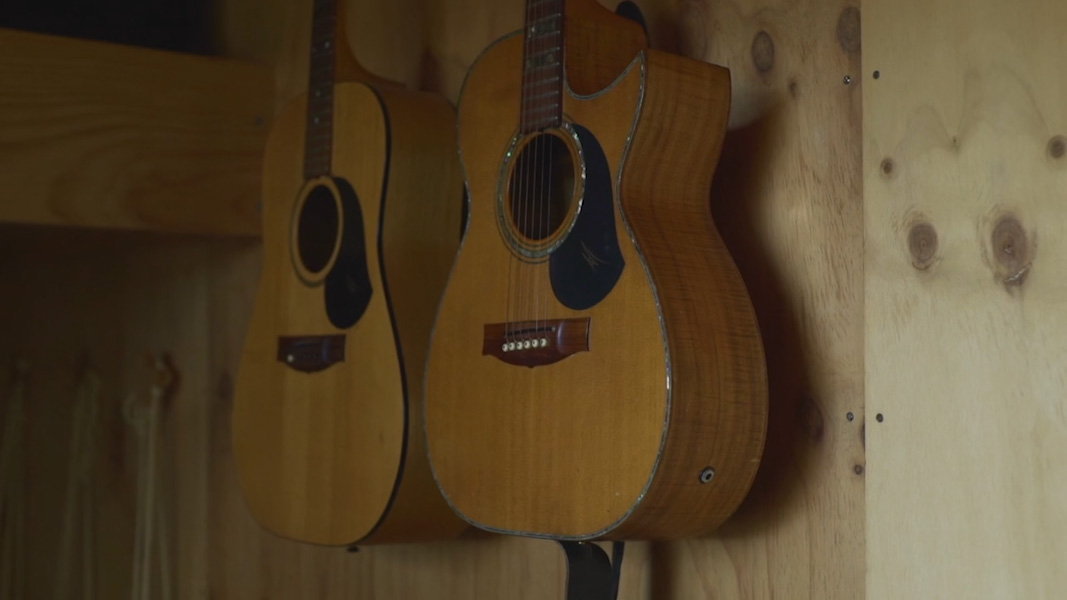I’ve always believed taking care of yourself was kind of selfish. Growing up a good Catholic girl, selflessness and sacrifice were to be aspired to. But this manifested for me as a belief that when it came to my needs, I should put myself last or leave myself out of the picture all together. On Mother’s Day 2018 that belief began to change. It had to.
I’ve since learned that it’s all relative and comparisons don’t help. They only make you feel worse. It’s validation a person with depression needs; permission to feel exactly how they need to feel at any given time. I was lucky, Mark gave me that.
As my song, The Story of My Life says, “I was born in 71, policeman dad and a yodelling mum.” With that came lots of wonderful things, but it also came with pressure. Pressure to be a perfect reflection on my family. I felt I always had to be a happy, little, pretty, thing. So, without even realising it, for my forty-year music career (an Anniversary I celebrate this year), that’s the role I’ve played. Until I couldn’t anymore.
I was diagnosed with Major Depressive Disorder and Generalised Anxiety. My doctor said, 'Be strong but not TOO strong.'
Her words really made me think. Was I too stoic? The answer was yes.

Melinda in studio

Melinda with guitar

Melinda at home

Melinda headshot

Guitars
Be strong, but not TOO strong.
Sometimes mental illness can come from being too strong for too long, and I think that’s a big part of what people in rural areas go through…the stoicism. They need to be stoic to go through the significant challenges they face – drought, fires and geographic isolation - but sometimes you can be too strong for too long, and that can become a negative thing for your mental health.
I have so much more self-awareness now, around how workaholism, perfectionism, exhaustion and a critical inner voice can bring on a bout of depression. Well, two in twelve months in my case.
In April 2019, my depression came back. And in May, I lost an old friend to suicide.
I was beyond devastated.
The grief and depression combined were too much and the pressure to be all smiles for my upcoming Doris Day National tour was looming.
I needed help.
I needed help.
I went back to my doctor, who convinced me I didn’t have to keep battling this alone. I finally agreed to try medication. A week later it kicked in and I felt so much better. However, I’ve learned that meds alone can’t manage it. I need to exercise, meditate, eat well and cut out coffee to stay healthy.
I’m lucky to have such amazing support. In rural and remote areas doctors and psychologists are much thinner on the ground.
In rural and remote areas doctors and psychologists are much thinner on the ground.
This is where the Centre for Rural and Remote Mental Health comes in. What I love about them is they’re there for the people in the bush. It’s an organisation all across NSW to help rural people achieve their best mental health and be well - they’re a really important part of rural people’s lives.
Getting the support I needed has helped me learn to be more gentle on myself.
For me, Be Gentle on Yourself means stopping self-judgement and treating myself with the same unconditional love I give my child. This doesn’t come easily, it takes practice, daily.
I’m a work in progress, but if I can tell my story it might just give one person the courage to be able to say to a friend or a family member “Hey - I need help.” There’s nothing shameful in doing that. In fact, it’s strong, and organisations like the Centre for Remote and Rural Health are there with the tools people need to recover.
In hindsight my experience with depression was less of a breakdown and more of a breakthrough. It’s changed me for the better.
Getting the support I needed has helped me learn to be more gentle on myself.
Melinda Schneider is an Australian country music artist and a new ambassador for the Rural Adversity Mental Health Program (RAMHP) program, partly funded by the University of Newcastle.

Based in Orange, NSW, The Centre for Rural and Remote Mental Health is a major rural initiative of The University of Newcastle and the NSW Ministry of Health. Its flagship program - The Rural Adversity Mental Health Program (RAMPH) is the first dedicated frontline rural and remote mental health program in Australia.
It has helped more than 8,000 people in rural and remote communities connect with mental health support services since 2016.The program has also trained more than 30,500 individuals to recognise and support someone who may be struggling with their mental health.
Through its world-class research it continues to understand and respond to the unique stresses faced by rural and remote Australians.